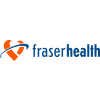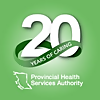Detailed Overview
Within the context of a client and family centered model of care and, in accordance with the Mission, Vision, Values and strategic directions Fraser Health, the Associate Physician (AP), Vascular Surgery, performs duties within the scope of an Associate Physician clinical duties and responsibilities and serves as a physician extender to provide care to inpatients across the organization.
The AP works under the supervision of the Most Responsible Provider (MRP) . On a day-to-day basis and is accountable to the Local Division Head of Vascular Surgery or documented delegate (e.
g., other attending vascular surgeons) for the overall provision of quality of care and professional development. The AP supports the provision of continuous care in a team-based environment working collaboratively with the MRP, Residents, NP’s, nursing and allied care providers to care for acute surgical patients admitted under vascular surgery.
Responsibilities Participates in patient rounds under the supervision of the Attending along with other care team members.
Assesses the day-to-day care of patients, including writing medical orders, consultations with other services, and responding to changing patient conditions, in consultation with attending staff.
Performs and documents admission history and physical examinations, progress notes, discharge summaries, and medication reconciliation as per CPSBC and organizational standards, policies, and guidelines.
Develops treatment plans in response to changing patient conditions, where appropriate and in consultation with attending staff.
Follows through on investigations and in consultation with the Attending staff. Communicates with, and responds in a timely manner to calls from, the nursing staff and other care team members.
Communicates with patients, family members, other consulting services, and trainees concerning patient care plans, as appropriate.
Performs procedures within the scope of their demonstrated competence which may include : insertion of peripheral intravenous lines, initiation of intravenous medication (appropriate for the vascular ward), debridement of wounds, vacuum-assisted closure (VAC) dressings, ultrasound guided IV peripheral access, assessment of surgical wounds, removal of surgical drains / clips, insertion and removal of central venous catheters and any other duties which are routine care of the Vascular Surgery Division on the wards.
In any and all of the above, the AP will not proceed until full training and competence has been established with sign-off by the Division / Department Head or their delegate.
Participates in professional development activities (a minimum of 50 hours per year, 25 hours of which must be accredited training recognized by the Royal College of Physician and Surgeons’ Maintenance of Certification Program for healthcare professionals).
Attends clinical rounds, UBC journal club, morbidity and mortality rounds, and other educational / research sessions. Participates in quality improvement projects relating to their patient or program.
May provide teaching and supervision for trainees. Complies with Associate Physician programs CPD reporting requirements.
Qualifications QUALIFICATIONS : Successful completion of Part 1 of the Medical Council of Canada Qualifying Examination (MCCQE) or Steps 1 through 3 of the United States Medical Licensing Examinations (USMLEs) and Education, Training and Experience Medical degree from a school listed in the World Directory of Medical Schools.
Minimum of two years of accredited postgraduate training as a medical or surgical specialist, verified by the College of Physicians and Surgeons of BC (CPSBC).
Proficiency in the English language as established by the CPSBC and eligibility for registration with the CPSBC in the Associate Physician class, under sponsorship by Fraser Health.
Valid Canadian Citizenship, be a permanent resident or be legally able to live and work in British Columbia. Advanced Cardiac Life Support (ACLS) certification during the three-month training and orientation period.
COMPETENCIES : Knowledge and skills to diagnose and manage common medical problems in the obstetric patient. Confidence and experience in recognizing and initiating response to emergency situations such as shock, acute coronary syndrome, stroke, etc.
Ability to recognize medical instability and address initial priorities of resuscitation. Ablility to judge situations where discussion and reporting to senior and most responsible physicians is appropriate.
Excellent English communication, including with patients, families and other health care professionals. Computer and written communication skills including order entry, clinical documentation, and ability to review relevant diagnostic information and health history.
Ability and comfort in working in a team-based environment. Ability to carry out professional duties in the face of multiple, competing demands.




